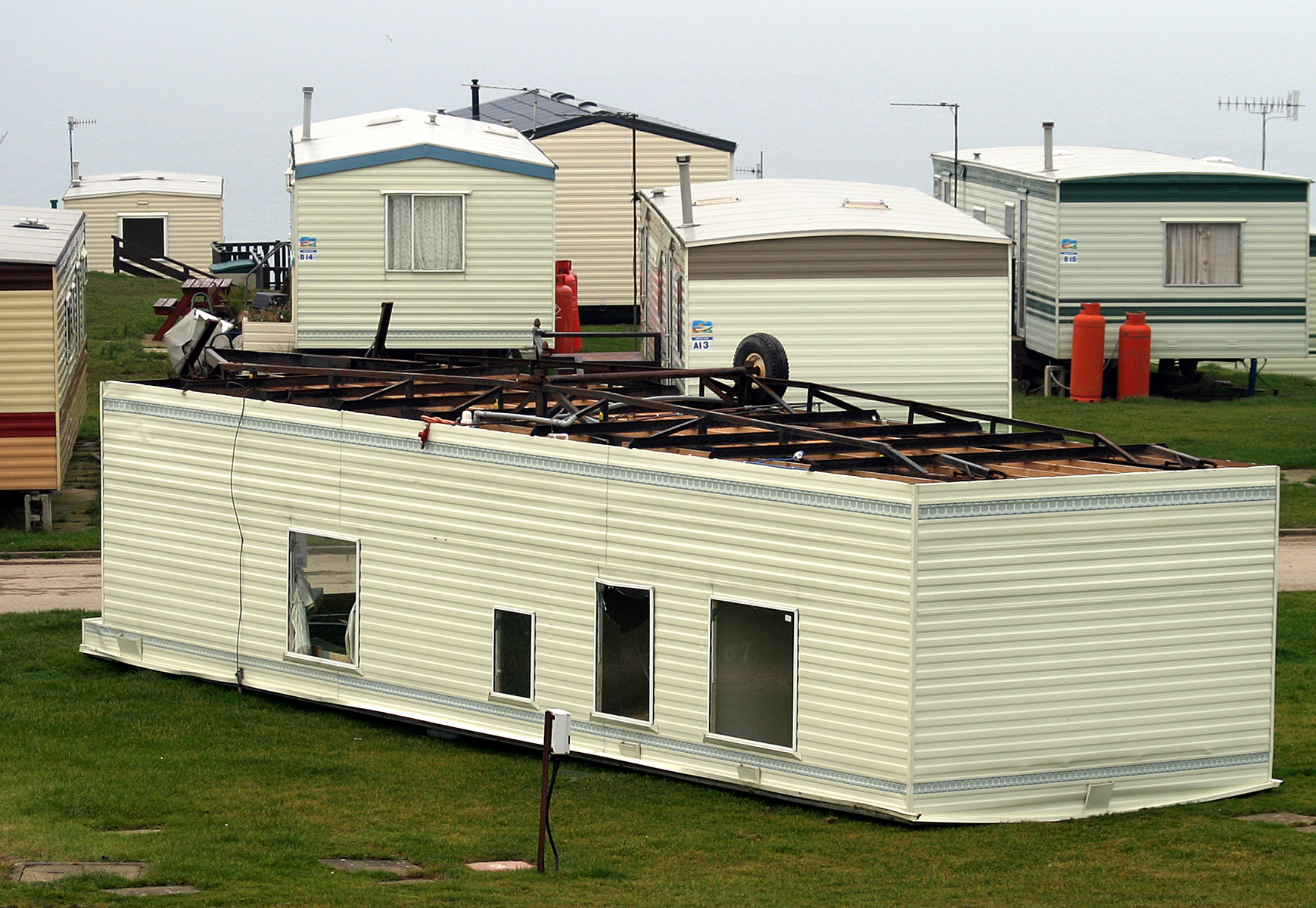For those who may own a mobile or manufactured home, purchasing insurance for your home is a necessary path to ensuring that your property is protected in the event of a loss. Just to clarify, whether such property is classified as a “mobile home” or “manufactured home” is insignificant for purposes of this blog post as the terms are relatively synonymous. The term “mobile home” is the more traditional classification, whereas the term “manufactured home” was born after new construction industry safety standards were mandated in 1976.1
More often than not, general mobile homeowners property insurance policies mirror standard homeowners property insurance policies in many aspects. Just like standard homeowners insurance policies, standard mobile home insurance policies will generally cover your dwelling and personal property as a starting point. Due to differences in size and makeup of a mobile home compared to a traditional home, those looking to purchase mobile home property insurance can expect to see lower rates and thus lower limits of insurance for their dwelling. Factors that are taken into consideration that may affect your mobile home insurance costs are:
- Age and condition of your home
- Your location – some areas are more prone to theft, fires, flooding, or wind damage than other areas
- Your coverage limits
- The amount of your deductible – higher deductibles may mean a higher upfront cost in case of a loss but are likely to reduce your premium
- Whether you qualify for discounts such as multiple policies, military service, or having a home security system
- Your claims history2
What many mobile homeowners who purchase insurance may not be aware of is that, while a mobile home contains remarkably similar characteristics to those of a typical home, including many of the same insurance language with respect to dwelling coverage, there is one particular provision that insurance companies may include in a mobile home policy that may not be a concern under standard homeowner policies. This provision is usually identified as a “salvage” provision.
Because mobile homes are mobile, insurers can include a salvage provision commonly included in most auto insurance policies. Such a provision often looks like one of these examples:
SALVAGE
If, as a result of your loss, we compensate you in cash or by replacement, an amount equal to or greater than the actual cash value of your property before the loss, we have the right to take legal title to your property at our option.
Salvage Rights. If as a result of your loss, we pay you in cash or by replacement an amount equal to the actual cash value of your property before the loss, at our option, we have the right, but not the obligation to take legal title of your property.
In 2004, the state of Florida witnessed insurance companies begin dropping mobile home coverage left and right. A news article from the Sun Sentinel on this exact subject quoted state officials who claimed that “[t]hose still covering mobile homes are treating them more like cars than homes.”3
Further, the Florida Legislature has established laws regarding damage, destruction, and salvage rights of mobile homes and motor vehicles under Florida Statute § 319.30.
(t) ‘Salvage’ means a motor vehicle or mobile home which is a total loss as defined in paragraph (3)(a).
(3)(a) 1. As used in this section, a motor vehicle or mobile home is a ‘total loss’:
a. When an insurance company pays the vehicle owner to replace the wrecked or damaged vehicle with one of like kind and quality or when an insurance company pays the owner upon the theft of the motor vehicle or mobile home; or
b. When an uninsured motor vehicle or mobile home is wrecked or damaged and the cost, at the time of loss, of repairing or rebuilding the vehicle is 80 percent or more of the cost to the owner of replacing the wrecked or damaged motor vehicle or mobile home with one of like kind and quality.
Fortunately for mobile homeowners who have insurance coverage and are worried about these salvage provisions, Florida law provides various safeguards and procedures for an insurance company that may consider making such a business decision to claim title to its policyholder’s mobile home. Some of these are:
- An insurance company that pays money as compensation for the total loss of a motor vehicle or mobile home must obtain the certificate of title for the motor vehicle or mobile home, make the required notification to the National Motor Vehicle Title Information System, and, within 72 hours after receiving the title, forward it to the Department for processing. Fla. Stat. § 319.30(3)(b)
- An insurance company may not dispose of a vehicle or motor home that is a total loss before it has obtained a salvage certificate of title or certificate of destruction from the Department. Fla. Stat. § 319.30(3)(b)
- A motor vehicle or mobile home shall not be considered a “total loss” if the insurance company and owner of a motor vehicle or mobile home agree to repair, rather than to replace, the motor vehicle or mobile home. However, if the actual cost to repair the motor vehicle or mobile home to the insurance company exceeds 100 percent of the cost of replacing the wrecked or damaged motor vehicle or mobile home with one of like kind and quality, the owner shall forward to the department, within 72 hours after the agreement, a request to brand the certificate of title with the words “Total Loss Vehicle.
Fla. Stat. § 319.30(3)(a)2.
As seen above, Florida law gives owners of mobile homes the right to repair, rather than replace, their homes if their insurers agree. This is why both salvage provisions listed above state that the insurer has the “option” to take legal title or that the insurer has the “right, but not the obligation” to take title to the property.
Although mobile homes and auto vehicles are grouped together with respect to salvage rights and destruction of property, the unfortunate reality of the difference between an insurance company taking title to your car rather than taking title to your property cannot be overlooked. The importance and attachment to someone’s place of living simply cannot be compared to someone’s ownership of a motor vehicle. To end on this point, I will provide a quote from the Sun Sentinel article that reinforces this idea:
Understanding why their homes are considered totaled can be difficult for people to understand when they can still live in them, O’Boyle said. ‘We’re kind of between a rock and a hard spot,’ he said. ‘When someone is told their home’s a total loss, and they say, But I can still live in it. … It’s a hard fact of life for them to take on.’4
Our founder and President, Chip Merlin, has previously published a blog on a case that involved salvage rights of a commercial property policyholder’s trailer used for his business. To read about a similar situation with respect to a different type of insurance coverage, check it out here:
https://www.propertyinsurancecoveragelaw.com/2009/05/articles/insurance/when-calculating-insurance-payments-take-the-deductible-from-the-repair-value-and-not-the-policy-limits/
For those mobile home policyholders who have questions regarding their mobile home coverage or are experiencing issues with their mobile home insurer, do not hesitate to reach out to an attorney at Merlin Law Group who may be able to assist you. Merlin Law Group attorneys Anthony Orlando and Carter Bess strive to assist mobile home policyholders who may be experiencing insurance-related disputes with the few remaining insurance companies that continue to offer mobile home coverage.
___________________________________________________
1 See https://mobilehomeliving.org/mobile-home-or-manufactured-home/
2 https://www.insurance.com/home-and-renters-insurance/mobile-home-insurance
3 https://www.sun-sentinel.com/news/fl-xpm-2006-03-30-0603291207-story.html
4 https://www.sun-sentinel.com/news/fl-xpm-2006-03-30-0603291207-story.html





